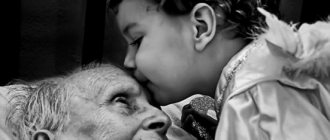If a person experiences an obsessive fear of pollution, is afraid of getting infected, and constantly tries to avoid contact with any surrounding objects, considering them dirty and therefore dangerous, it means that he has developed mysophobia. People who experience such fear are called mysophobes. Basically, every person understands perfectly well that there are beneficial bacteria, they contribute to good digestion of food, as well as harmful ones, such as influenza viruses, E. coli, salmonellosis, E. coli. People suffering from mysophobia significantly exaggerate the existing risk of the negative influence of microbes. They are sure that every exposure is potentially dangerous and can be a threat to life.
Mysophobia is particularly widespread in America. According to experts, this factor is related to a special perception of the world, when people are sure that the world is an uncontrolled and dangerous habitat. In addition, various media have a significant influence on the rapid spread of mysophobia. Manufacturers offer a huge range of products for food hygiene and disinfection, disposable seats, portable belts for use in the subway and other public transport.
Causes of mysophobia
Experts consider mysophobia to be a common symptom of anxiety and obsessive-compulsive disorders, leading to unwanted thoughts that cause violent actions. In addition, mysophobia has a direct connection with hypochondria, the fear of contracting a dangerous disease. In some situations, mysophobia may be considered a separate type of phobia. There are many reasons for the emergence of such fear, but experts have determined which are most common. For example, a person has personal experience associated with a traumatic event. A negative emotional reaction to dirt or microorganisms because an incident occurred with sad consequences.
Perhaps the trouble did not happen to the person personally, but someone from his environment suffered. In addition, mysophobia often occurs under the influence of such a harmless factor as watching a TV show or movie. If there is this disorder, there are tendencies towards it, then it is not surprising that family members experience anxiety and depression occurs. According to some psychologists, the sharp increase in mysophobia is due to the fact that the population is concerned about the spread of AIDS.
Order comes first!
There are many women in the older generation who have very strict and firm rules regarding how and when to clean the house, how to arrange things in the closet, how often to change linen, etc. They usually fulfill these requirements themselves, but sometimes they call on loved ones to follow the “master plan” outlined by them and consider those who are not concerned about cleanliness to be “lost” people.
What to do
Remember that all cleanliness is relative - not only a leak from neighbors can happen, but also an earthquake, house demolition or fire. Then all efforts to restore order will seem ridiculous. Try to look at them from this point of view, thank God that there is nothing like this in your life, and clean as much as you have the strength and time to do without compromising other interests.
It is useful for married women, with rare exceptions, to realize that men, alas, generally do not value cleanliness or order in the house at all. He disturbs them, complicates their life, while they expect peace and ease from home.
Situation two.
Symptoms and signs of mysophobia
An attack of mysophobia develops like other phobias and has similar symptoms. Nausea occurs, breathing becomes difficult, and heart rhythm is disrupted. Usually in such a situation a person fears that he will lose control over himself. In addition, hand tremors are observed; the mysophobe feels infected because he has discovered accidental contamination on himself. People suffering from mysophobia try by any means to avoid situations where they may be exposed to germs. If there is mysophobia, a person begins to behave unreasonably, and actions become obsessive. In particular, he washes his hands repeatedly. Scientists note that such an action can make a person more susceptible to infections. At the same time, mysophobe never visits places that, in his opinion, are dangerous and contaminated with germs. First of all, these are public showers, bathrooms, toilets, and swimming pools. Such a person always separates his personal belongings from common ones very carefully, including dishes and personal food. Social events associated with groups of people or the presence of animals also seem extremely dangerous to mysophobes.
Humanity has fallen ill with a phobia of cleanliness: but sterility does not save you from the virus
Mysophobia is an obsessive fear of germs. A person with this syndrome avoids contact with surrounding objects, cannot start a family, avoids strangers, constantly washes his hands, and disinfects all surfaces. Until recently, such people were considered outcasts. Now they are not alone.
“I wash my hands 200 times a day”
Svetlana Novichkova has been living with mysophobia for more than four years. The girl is a group 3 disabled person. Does not work. He receives a pension of 8,900 rubles.
“I developed mysophobia when my neighbor next door returned from prison and set up a drug den in his apartment. Our entrance turned into a garbage dump: syringes and bloody cotton pads were lying on the staircases, the door handles were stained with blood. That guy’s friends relieved themselves from the balcony, there was a stench in the entrance, a public toilet was set up in the stairwells with all the ensuing consequences - one felt sick, the other had diarrhea. That's when it hit me. The understanding has come that such comrades are everywhere: they go to the store, visit public places. Since then, I have been afraid to touch door handles, ride in public transport, even in my own apartment I felt uncomfortable, because I lived with my parents and could not control them.
Two years later, the neighbor went to jail. The entrance has been renovated. But the phobia remained with me. I couldn’t live with my parents anymore; they didn’t follow my rules. We changed apartments. Now I live alone, although I have a boyfriend. But we can't get along together. He began wiping surfaces and thoroughly washing his hands only when the coronavirus epidemic began. But when he leaves, I wipe down everything he touched.
I don't visit public places. Shop door handles, terminals, and elevator buttons cause disgust. I don't know who touched them. I will never go into a public restroom, I endure it until I get home, so I don’t drink on the street. I don't use cash.
Inside, everything turns over from the sight of spitting on the asphalt. After going outside, I polish my shoes in a bucket by the front door, pour the dirty water into the toilet, which I then treat. Psychologically, this procedure is not easy for me, so I rarely go outside.
I always carry regular napkins with me that I use to open doors. There is no money for antiseptics, you can’t spend money on a disability pension, half of the money goes to “mysophobic” things. In public places I turn on the tap with the back of my hand: I washed my hands, wiped them with a napkin and then turned off the tap with it.
My home is like an infectious disease ward - clean and sterile. I vacuum, wash floors, dust every day, and disinfect the bathroom sink, taps and soap dishes several times a day. I have a very ordinary mop, I clean the old fashioned way, and my hand hurts a lot from frequent squeezing. Do you know what I dream about? About a robot vacuum cleaner, but I can’t afford such luxury. Cleaning takes four hours. There is no time left for yourself. Now do you understand why mysophobes live alone and don’t even invite guests?
I wash my outerwear often. I regret that there is no way to wash the fur coat, so I resigned myself to wearing it like this. After a walk, I immediately throw my regular clothes into the wash. I change my home and night pajamas every day. Once a week – change of bed linen.
I shower every day, in the summer several times a day. This process takes at least an hour. I never wear short sleeves so as not to let my skin come into contact with surfaces. Before going to bed, if I don’t have time to wash my hair properly, I definitely rinse it with water, but then the next day I change the bed linen. The washing machine runs constantly. Before removing washed items from the machine, I wash my hands thoroughly.
I wash my hands two hundred times a day, there is enough soap for three days. I soap my hands twice and hold them under water for a minute. The skin deteriorates. I save myself with night cream. If my hands are not washed, I don’t touch my face. Hand control is constant.
Going to the store is still an ordeal. After returning, I leave my bag at the doorstep and run to wash my hands. I put the products into my own packaging bags. I immediately rinse fruits and vegetables and then clean the sink.
I also always wipe my phone with chlorhexidine. One day my smartphone fell to the ground, I washed it with soap under the tap, and it broke. Recently I dropped a suede bag on the street. Usually, if something gets dirty, I throw it away. But I have only one bag, I couldn’t say goodbye to it. I washed it. But every time I pick it up, I shudder and remember that it was on the ground.
The hairdresser and manicurist are my good friends, so I allow them to touch me.
It’s hard to get used to a “sterile” lifestyle. I'm tired. Sometimes you want to throw away all these antiseptics and rags for washing floors, but you can’t. If I haven’t done something from my standard ritual, I feel anxious and nauseous. I tried going to a psychotherapist, but the consultation was expensive - 1,300 rubles, so I gave up.
Now during the coronavirus, I feel psychologically better. No one shys away from me, although all I heard before was: “You’re crazy.”
The fear of coronavirus has not increased; I have been living in this state for a long time. Nothing changed".
“Now people look even stranger than me with my phobia”
33-year-old Denis contracted mysophobia on a minibus. Since then she has been with him.
“I once had a normal life, I worked, traveled by public transport, went to rock concerts. But one day changed my mind. The incident happened in a crowded minibus when a homeless man sat next to me. There was nowhere to run, he settled down next to me and wiped himself on my sheepskin coat. I felt bad all day. I barely made it to the end of the working day, returned home, took off my clothes on the staircase, and packed everything in a bag to take to the dry cleaner. After that, I spent several hours in the shower and calmed down a little.
From then on, a difficult period began for me. Bacteria and germs don't bother me much, I'm just squeamish about a lot of things. I stopped riding the minibus and switched to the subway. But on public transport, everything bothered me: unkempt passengers, visitors, homeless people. I avoided crowds, did not sit in a crowded carriage, and missed trains. I started staying late at work to avoid rush hour, and in the mornings I was late because of this, and I had to listen to reproaches from my superiors. When it became completely unbearable to use public transport, I bought a car.
At home I tried to move around less; everything seemed dirty to me. My parents didn’t understand me, we had conflicts. When I explained everything, my loved ones agreed to live by my rules. Now all relatives’ clothes from the street are left in the corridor, and after walks they wash their hands thoroughly. There is no fanaticism and they do not use disinfectants.
I always have wet wipes and disinfectant spray in my bag. I avoid close contacts with people whenever possible.
Friends are aware of the problem. When meeting new people, I warn you that I don’t like contact. Sometimes at work I have to shake hands, and then I immediately run to wash my hands. The ritual of handshakes is annoying, because in this way people share a bouquet of microbes with everyone. It’s annoying when people don’t wash their hands after using the toilet, so I open the doors either with my foot or with a napkin in my hands. One day, a man accosted me in the toilet; he didn’t like the fact that I stained the faucet handles with soap. I tried to explain that I don’t like it when he opens the tap with his hands after using the toilet. To which he answered: “If you are so sick, stay at home.”
I go to the cinema, but I take seats away from people. After visiting guests, all clothing is usually washed. I hardly use my mobile phone at home. For SMS and communication at home there is a tablet. If I really need to, I disinfect my smartphone and keep it in a special washable case. After the store, I immediately wipe down the products and boxes. Washing takes a lot of time, but peace of mind is more important.
Napkins, soap, antiseptics eat up a lot of money. But I don’t skimp on such things. Paper money is evil, I pay with a card.
The current situation with coronavirus has led to the fact that the streets have become cleaner, people are not in contact with each other. Therefore, favorable times have come for me. I notice that now some individuals have begun to look stranger than me with their napkins and mania for cleanliness. Colleagues wear masks and gloves when working with accounts and acts. Looks funny.
“If the seller slobbers on his finger, you want to give him some bream”
Another interlocutor, Alexander fears coronavirus much less than AIDS and hepatitis.
“It’s hard to say where my phobia comes from. A few years ago I began to notice that I felt discomfort from not washing my hands. Mysophobes have an obsession with constantly washing their hands after touching something. This happens automatically. Ordinary people can easily pick up a phone that has fallen on the asphalt and continue using it. For me this is akin to a disaster.
With the advent of the coronavirus epidemic, my life has not changed. I washed my hands often before - not only before eating and after using the toilet, but even if I held my wallet or diary. I have been using antiseptic for the last four years. I always take liter packaging made in Germany. Months ago I bought it for 700 rubles per liter. Now they are sold out. I had to run around to find it. I took it with reserve.
Licking fingers in a store, a dirty phone on the dining table, walking barefoot on the floor are unacceptable things. The habit of salespeople in stores slobbering on their fingers is annoying; sometimes you want to give them bream. Handshakes and kisses are excluded, so living together with someone is impossible. I was thinking about getting a cat, it doesn’t leave the house, it won’t bring dirt.
When I travel on public transport, clothing serves as a barrier to people. But if I nevertheless touch another person’s skin or sit in a chair where someone else sat before me, I feel discomfort. I don't take money into my hands. They leave a persistent feeling of dirt on your hands. Public toilets are disgusting.
I’m not afraid of coronavirus, I’m more afraid of AIDS, syphilis, hepatitis.
I wash things in the machine. Outerwear, underwear, T-shirts, jeans, socks, jackets, bedding - all separately. Each batch in several passes. And still the clothes seem not washed enough.
I keep my house clean. After returning from the street, I don’t touch anything until I wash my hands. After guests, I disinfect the entire apartment and small things: phone, keys, work notebook, and other attributes. If I drop an item of clothing on the ground, I throw it away. It’s disgusting to even throw them in the washing machine. It’s the same with technology – my headphones fell off, I say goodbye to them.
Wash fruits with soap 2-3 times. I close the tap with my knuckle.
My world is clearly divided into clean and dirty. The street is dirt, the house is a safety island. But on vacation with friends, in a hotel it’s hard. I grit my teeth and think about one thing - I’ll wash everything off at home. Essentially, you do a lot of pointless things just to reassure yourself.
I heard that there is treatment for phobias. I believe that it is impossible to completely get rid of it. It's like trying to forget how to ride a bike. It's easier to learn to live with it. Not sure. People are afraid of the virus, which is transmitted by airborne droplets, but I have a phobia of bacteria that live on surfaces. I don’t wear a mask because I’m a fatalist by nature. Which have not be avoided".
“As soon as I heard about the epidemic, the panic worsened”
Vladimir is a student who has lived with mysophobia for many years. He doesn’t even remember when he calmly walked around the city and made contact with unfamiliar people.
“My phobia developed in adolescence. I can’t understand what was the impetus. At some point, I began to understand that it was unpleasant for me to touch door handles, hold handrails on public transport, and after every visit to a public place, I felt the urge to wash my hands.
During the coronavirus epidemic, panic worsened. I practically stopped going outside. The only relief I experienced was when I saw that people began to pay great attention to hygiene, and mysophobes no longer stood out from the crowd.
I always wore masks, so I was afraid that they had disappeared from pharmacies. I still have some supplies, but in small quantities. If they run out, mom promised to sew them. I can’t stand antiseptics; I think they simply distribute dirt evenly over the surface of the skin; I prefer regular soap or alcohol. I wash my hands thoroughly after visiting the street several times. Now I started washing even more often. For example, I came back from the street and washed it twice. I ate and washed again. I did something around the house and ran to the bathroom again. And so on all day. After cleaning shoes and washing, I wash my hands several times.
I tried to count how many times a day I wash my hands, but I lost count. The soap is used up quickly; one bar lasts about 10 days. Hands get damaged. The skin between my fingers became so dry that it turned white. At night I lubricate them with baby cream. I don’t wear gloves, I don’t want to stand out from the crowd.
I don’t shower very often because I don’t work or go out. I don’t disinfect my clothes; I prefer extensive washing, which causes a lot of trouble. I wash things with powder by hand, rinse them several times and wring them out thoroughly. Before washing, wash the basin with soap and a sponge.
House cleaning occurs once a week, but thoroughly. There are not so many cleaning products, I limit myself to the minimum set. I wash the floors with powder and the furniture with detergent.
I treat fruits and vegetables with laundry soap, rinse canned food with water before opening, and wipe with a cloth. I don't use cash, only cards. If I touch a paper bill, I feel like germs are attached to my fingers. There is no way to wash my hands, I have to wait until I get home. And this is torture. Many people lend personal items to friends. This is not acceptable to me. One day I foolishly gave my headphones to a friend. When they were returned to me, I couldn’t put them on and threw them away. When I go to classes at the university, I wear long sleeves so as not to touch my skin to the desk.
The whole ordeal is visiting a public toilet. I don't touch anything there. I don’t lock the cubicle door, I only open it slightly to go in and open it to go out. I carry out all manipulations with the outside of my hand. It is difficult to open some taps. I open the usual tap, which needs to be turned, with the underside of the inner palm, parallel to the part of the palm from the little finger. I lift a modern crane with the outside of my hand. I avoid people, it makes me feel calmer. Kisses are only possible with parents and with a loved one who is not there. It’s difficult to live like this, but I’m already used to it.
During the epidemic, I feel safer, but not 100 percent.”
“Laundry turns into a ritual”
Anastasia believes that the coronavirus has not changed the people: “I watch people and understand that hygiene for many is only a necessary measure, the epidemic will end, everything will return to normal.”
“The first time I felt the need to wash everything was when I was renting an apartment 10 years ago, and my neighbors noticed that it was unpleasant to live where no one knew who ate, slept, and washed before you. I involuntarily thought, and fear covered me. Over the years, the phobia worsened.
I carry antibacterial wipes with me. I wash my hands up to fifteen times a day, long and thoroughly. A bar of standard soap lasts for five days. My hands get damaged, so I use hand cream all the time, using the richest consistency. I take a shower for at least an hour.
I wash my clothes at a temperature not lower than 60 degrees. Things from constant washing become unusable faster, which is annoying. But it’s better to ruin a thing than to break your mental state. My laundry turns into a whole ritual, I’m so exhausted, it’s as if I washed it by hand. There are many cleaning products, mostly antibacterial. I don’t clean the apartment every day: if I left everything in alcohol the day before, then the next day I feel fine.
I try to keep my distance from people, I don’t go to cinemas.
It is difficult to live with such a syndrome; a phobia turns a person into an outcast and causes maximum inconvenience. It is impossible to get used to this way of life. I’m already silent about how difficult it is to find a soul mate. Now, during a period of general panic, I do not feel even more fear. I have a phobia and without any coronavirus on the verge, this is how I live.”
“My hands turned white, and drops of water were bouncing off them.”
No one knows how much the people's psyche will be shaken during the epidemic. Probably every second person will become a mysophobe. But 18-year-old Mikhail Makeev was cured of his phobia.
“My mysophobia appeared at the beginning of 10th grade. I broke up with my girlfriend and was very worried. I couldn’t concentrate on my studies, I sat and was sad. By the way, in many patients with mysophobia the syndrome develops according to the same scenario.
One day I noticed that a classmate who had skin problems had touched my jacket. I felt disgusted. I returned home and washed my jacket. Then I began to notice that this guy was touching my desk and other objects. It got to the point where I started doing laundry every day and washing my hands for a long time after touching something I considered “dirty.” The disease progressed, many things seemed “dirty” to me, I could not touch a pen that fell to the floor. I stopped shaking hands with people.
If during the coronavirus epidemic I still suffered from mysophobia, it would have been difficult. I would be even more afraid of contact with the outside world, because everything seemed “dirty” to me. On top of that would be the fear of getting sick.
When I suffered from mysophobia, I did not wear a mask, gloves, or use disinfection gels. All I needed was soap. I washed my hands thoroughly, the process took a lot of time, up to 1.5 hours. A whole bar of solid soap could easily be gone in one go. If you use hard soap, then after a long wash the skin becomes dry, whitens, and drops of water that fall on it bounce off. When using liquid soap, the skin was slippery. To restore the skin, after each session, I used cream, otherwise cracks would appear.
An abnormal craving for hygiene led to the deterioration of relationships with parents. They argued when I took a long time in the bathroom and used a lot of soap and washing powder..
I want to say that not all mysophobes are afraid of becoming infected with something; I felt uncomfortable coming into contact with objects. I constantly washed and washed everything. This took a lot of time and effort. During the acute phase of the illness, I avoided contact with people who acted as irritants to my phobia. I was experiencing internal tension.
Now he has recovered from his illness. Therefore, there is no fear of getting infected. Such phobias can be treated, but you need to overcome yourself. While getting rid of the phobia, each time I did more and more things that were unpleasant to me, because I dreamed of living like before. As a result, I came to the understanding that if I don’t wash my hands again, nothing bad will happen.
Another interlocutor refused to tell a detailed story about his life, but concluded: “Now I will giggle maliciously at the doctors who considered me an idiot and convinced me that there is no such disease as mysophobia. They recommended drinking valerian and convinced me that personal hygiene was nonsense, and that avoiding public places was stupid. That’s what they said, they say, you’re a fool, protective equipment won’t save you, we don’t always wash our hands between patients, and everyone is alive. Now live in the same panic that I have had since something broke in my brain. It's funny that today anyone can be considered a mysophobe. It’s a pandemic after all.”
PS
Finally, we asked our heroes how often they suffer from viral diseases.
Mikhail : “I rarely get sick; over the last four years, while I was suffering from mysophobia, I got sick twice. I think that people with this syndrome still get sick because they completely wash away the protective layer of bacteria from the skin, which does not have time to regenerate. Therefore, it is necessary to use cream.”
Denis : “I haven’t taken sick leave for more than five years. Sometimes I get a mild cold, about once a year. An aspirin tablet, a couple of days of illness and everything is fine.”
Svetlana : “In five years, I was sick three times at most. Because I keep everything clean and disinfect everything.”
Vladimir : “Fortunately, I’m not sick. I’m not asking for medical help.”
Alexander : “Yes, like everyone else, probably. Sterility doesn’t really save you from the virus.”
Wikipedia lists celebrities who suffer from mysophobia: Nikola Tesla, Howard Hughes, Joan Crawford, Friedrich Nietzsche, Arthur Schopenhauer, Donald Trump, Cameron Diaz, Howie Mandel, Vladimir Mayakovsky, Vyacheslav Dobrynin.
Features of mysophobia
With mysophobia, a person’s communication is limited, thereby significantly affecting the quality of his life. Mysophobe often refuses to even shake hands; he avoids touching door handles. People often go to extremes to avoid being involved in situations that cause them embarrassment. Thus, he finally moves away from society, remaining in a vicious circle. Mysophobia can be confused with compulsive hand washing. But with obsessive-compulsive disorder, the motivation is different. Thus, a mysophobe washes his hands, fearing infection, and patients with an obsessive disorder do this in order to maintain order in their lives.
Psychologists have proven that when a person has mysophobia, there are many serious social consequences. In addition to the problems already listed, difficulties with communication also arise. People around him cannot understand why mysophobe behaves this way. I begin to think of him as a person who is hostile and is mistaken for being paranoid. As a result, alienation always arises, a person finds himself in forced isolation.
Treatment of the disease
Mysophobia can be cured, but this requires the desire of the patient himself. The most effective techniques in this case are the same as those used for other types of phobic disorders. Cognitive behavioral therapy comes first here. In this case, the patient is taught to overcome fears. Thanks to the doctor, the person goes through intense exposure to dirt. For example, shaking the hands of other patients, as well as touching garbage. Such treatment is always effective, mysophobia recedes, and excellent results can be achieved quickly.
Medications are also used to treat mysophobia. As a rule, these are various antidepressants prescribed by a specialist. Pharmacotherapy perfectly complements cognitive therapy, so the treatment is as effective as possible. At the same time, it should be noted that medications often cause unwanted effects, so drug treatment should not be used continuously. In life you can find many examples of mysophobia, and even famous personalities suffer from such a phobia. Therefore, you should be patient and consult a doctor with your problem, and not tolerate this problem. It is important that loved ones treat with understanding and help the person overcome mysophobia, but criticizing and reading morals is unacceptable in this case, do not forget about it!











